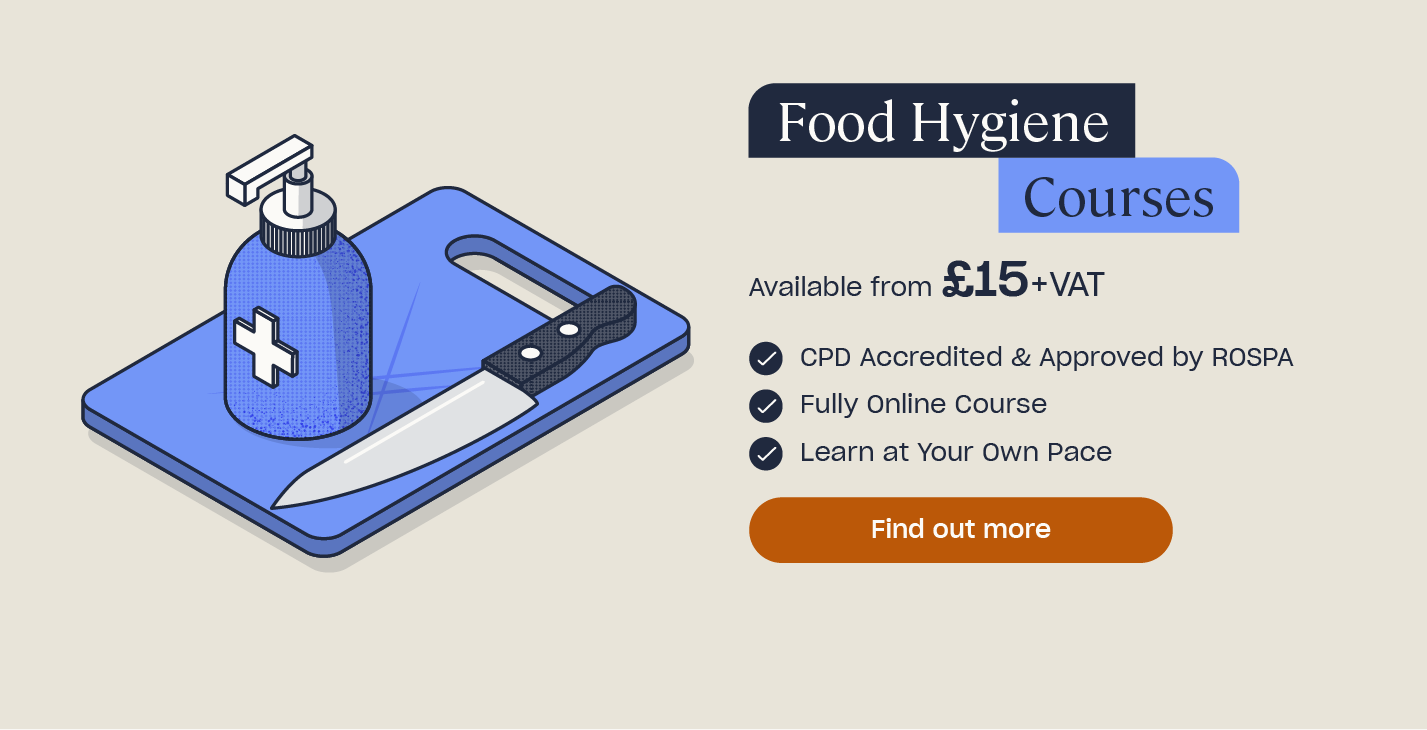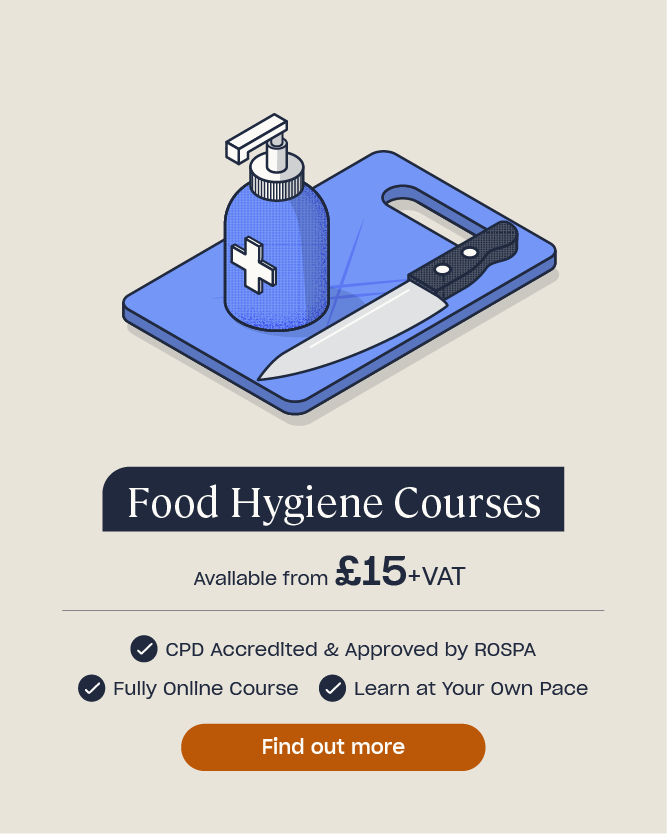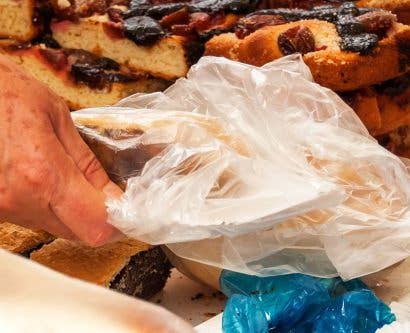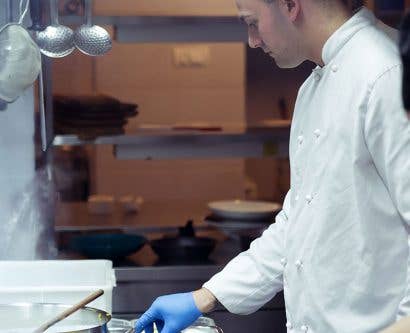Why is Food Hygiene Training Important?
If your job involves working with food – whether you’re preparing, delivering, serving or packaging it – then UK law requires you to have an understanding of food hygiene and food safety controls. Food hygiene training is important to not only ensure legal compliance, but also to make sure you know how to handle food products hygienically and how to keep your customers safe from potential harm. In this article, we’ll look at why taking a food hygiene training course is so vital for you and your organisation.
What is Food Hygiene Training?
Food safety law states that all food handlers must be trained in food hygiene matters ‘commensurate with their work activity’. This means that everyone in the food and drink industry, no matter their level or role, must be trained in food hygiene and understand food safety measures before they begin work.
Food hygiene training ensures all members of staff know how to prepare, handle and store food safely so that customers are protected from food-borne illnesses and other food safety hazards.
When you’ve completed a food hygiene training course, you’ll get a certificate at the end that you can use as evidence of your training and knowledge – something that’s particularly important when an Environmental Health Officer (EHO) comes to do a food safety inspection.
It’s recommended that you refresh your food hygiene training every 3 years to make sure your knowledge is up-to-date with the latest practices and laws.
Need More Guidance?
High Speed Training can provide advice on what level of food hygiene training you need and offers a range of different food hygiene courses to meet your particular needs.
Why is Food Hygiene Important?
If you work in the food and drink industry, then food safety law requires you to have an understanding of food safety procedures in order to minimise contamination and keep customers safe from harm, such as food poisoning, allergic reactions or even injury.
Alongside legal compliance, food hygiene training is important because it ensures you know how to prepare, handle and store food safely and hygienically. It also gives you the skills needed to clean effectively, minimise food waste and make your premises a welcoming place for customers.
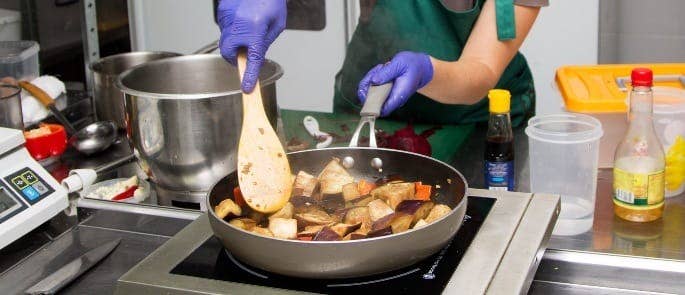
More specifically, food hygiene training ensures you recognise how to:
Prevent cross-contamination
Cross-contamination occurs when food is handled in a way that allows harmful bacteria or food allergens to spread from one area to another. For example, using your hands to prepare raw meat, not washing them properly, then touching the fridge door handle could potentially spread harmful salmonella bacteria from the food, onto your hands and then onto the handle. Avoiding cross-contamination in the kitchen, and anywhere that food is served, is essential as even the smallest amount of contamination can lead to food poisoning or an allergic reaction.
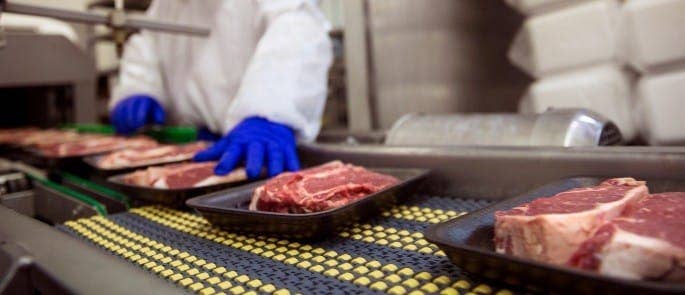
Manage food allergens
If food isn’t handled hygienically and cross-contamination is permitted, then food allergens can easily be found in places they shouldn’t be. If a customer with a food allergy then consumes the contaminated food, they may have a fatal allergic reaction. Food hygiene training is important because it covers everything you need to know about food allergens.
Reduce food waste
Poor food hygiene practices often lead to food going out of date or becoming unsuitable for consumption. For example, if food products are stored at an inappropriate temperature or if there’s no effective date rotation system in place. Food hygiene training teaches you how to store food effectively in order to maintain food quality, minimise wastage and save your business both time and money.
Improve efficiency
A lack of training usually leads to a lack of efficiency in workplaces of all types. In a food business, poor efficiency wastes time, products and money. Food hygiene training will enable you to understand more about how a food premises can work more effectively, perform tasks more efficiently and reduce errors.

Promote a positive food safety culture
A positive food safety culture is one where food hygiene practices are upheld at all times and where workers instinctively do the right thing when it comes to food safety, even when they’re not being observed by an inspector. Regular training in food hygiene ensures that this positive attitude towards food safety is maintained, as all members of staff recognise the importance of hygiene and have this message reinforced through education.
Build a strong business reputation
Customers at your premises are unlikely to return again if the experience they have is poor. With excellent food hygiene and safety practices, however, your reputation will be enhanced as customers will notice your cleanliness, knowledge and proficiency in food safety. Food hygiene training plays an important part in ensuring you have the right knowledge to maintain your business’ reputation and lead you towards that all-important five star rating.
Which Food Hygiene Certificate Do I Need?
The type of food hygiene certificate you need depends on your particular job role, your responsibilities and the type of food business that you work in. As a general guide:
- The Level 1 Food Hygiene and Safety certificate covers the very basics of food hygiene and is for job roles that do not directly prepare, cook, handle or package food, such as front-of-house staff, reception staff, checkout workers, bar staff, delivery drivers and warehouse staff.
- The Level 2 Food Hygiene and Safety certificate is for food handlers that prepare, cook, handle or package food to be eaten by others, such as chefs, kitchen assistants, baristas, childminders, food shop workers, market stall holders, bakers and food factory workers.
- The Level 3 Food Hygiene and Safety certificate is aimed at people who manage or supervise workers in food premises, such as head chefs, kitchen managers, restaurant managers, food shop supervisors, quality controllers and factory supervisors, and goes into much more detail about food safety management and HACCP.
You can also choose to take a food hygiene certificate in one of three industries, depending on where you work:
- Food Hygiene and Safety for Catering – businesses where food is prepared and served directly to the consumer, like a restaurant, cafe or canteen.
- Food Hygiene and Safety for Retail – businesses where packaged food is sold but isn’t usually consumed straight away, like a shop, deli or supermarket.
- Food Hygiene and Safety for Manufacturing – businesses that deal with food assembly, processing, packing and storage, such as food factories and warehouses.
Still not sure which food hygiene certificate you need? Take a look at our article – Food Hygiene Certificate Guide by Profession A-Z – to learn which course applies best to which job role.
Food hygiene training is important for all job roles at all levels and in all types of food premises, whether you work on the factory floor, in a restaurant kitchen or behind the counter in a supermarket. It’s a legal requirement for you to understand food safety and hygiene procedures, so obtaining a food hygiene certificate is a great first step in ensuring you have the knowledge you need to promote a positive food safety culture in your business.
What to Read Next:
- 4 Common Kitchen Hazards and How to Avoid Them
- Food Hygiene Rules and Guidance
- How to Prepare for an EHO Visit
- Health and Safety in the Kitchen Quiz
- What Type of Training Must Food Handlers Receive by Law?
- Is There a Difference Between Food Hygiene and Food Safety?
- What You Need to Know About the SALSA Standards


